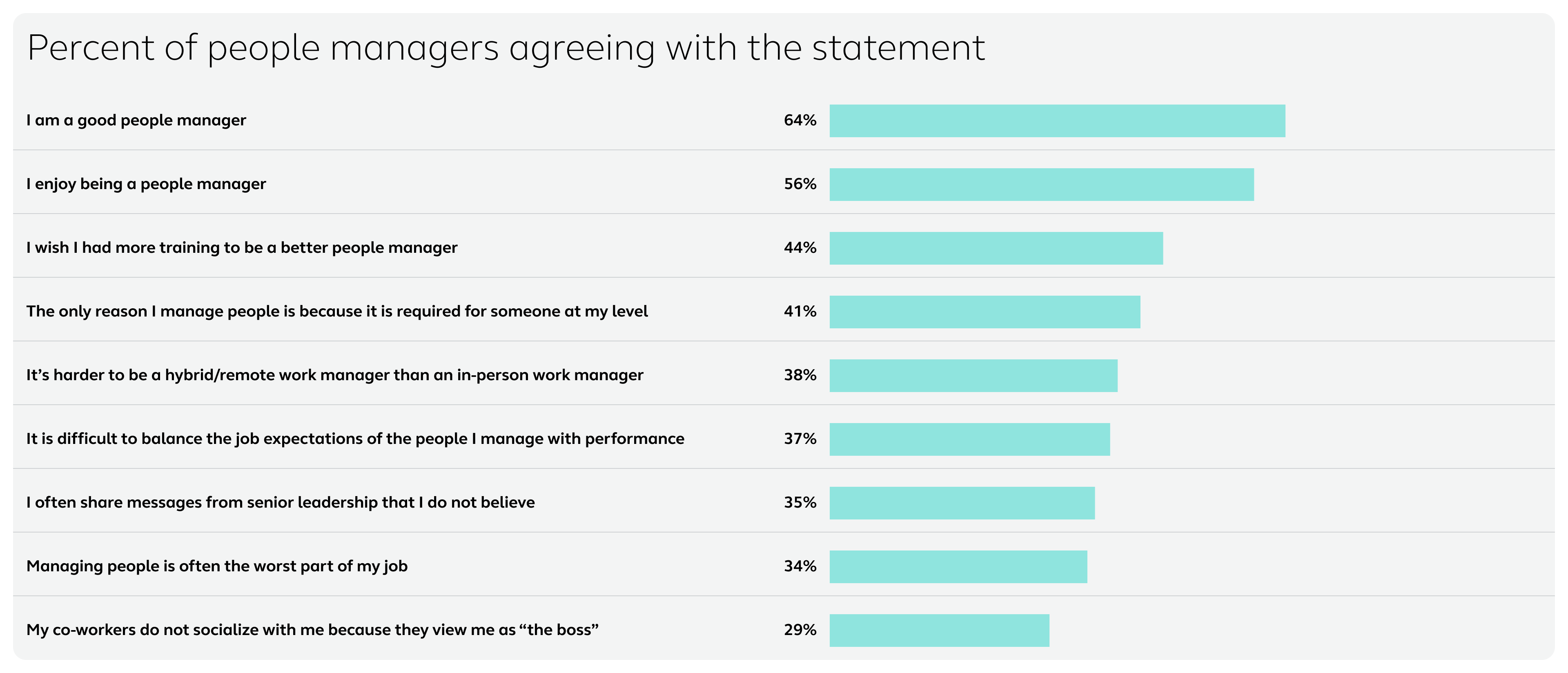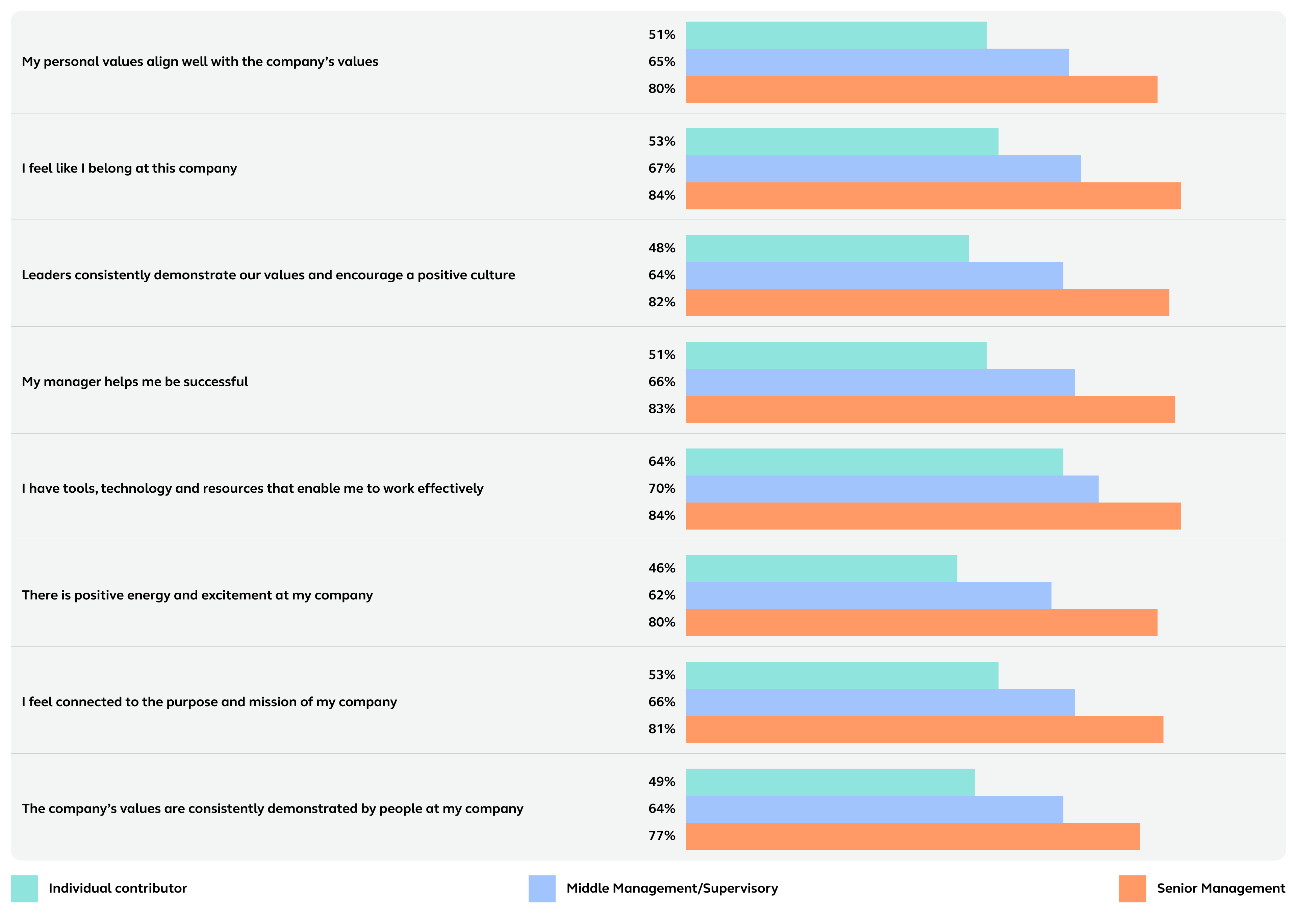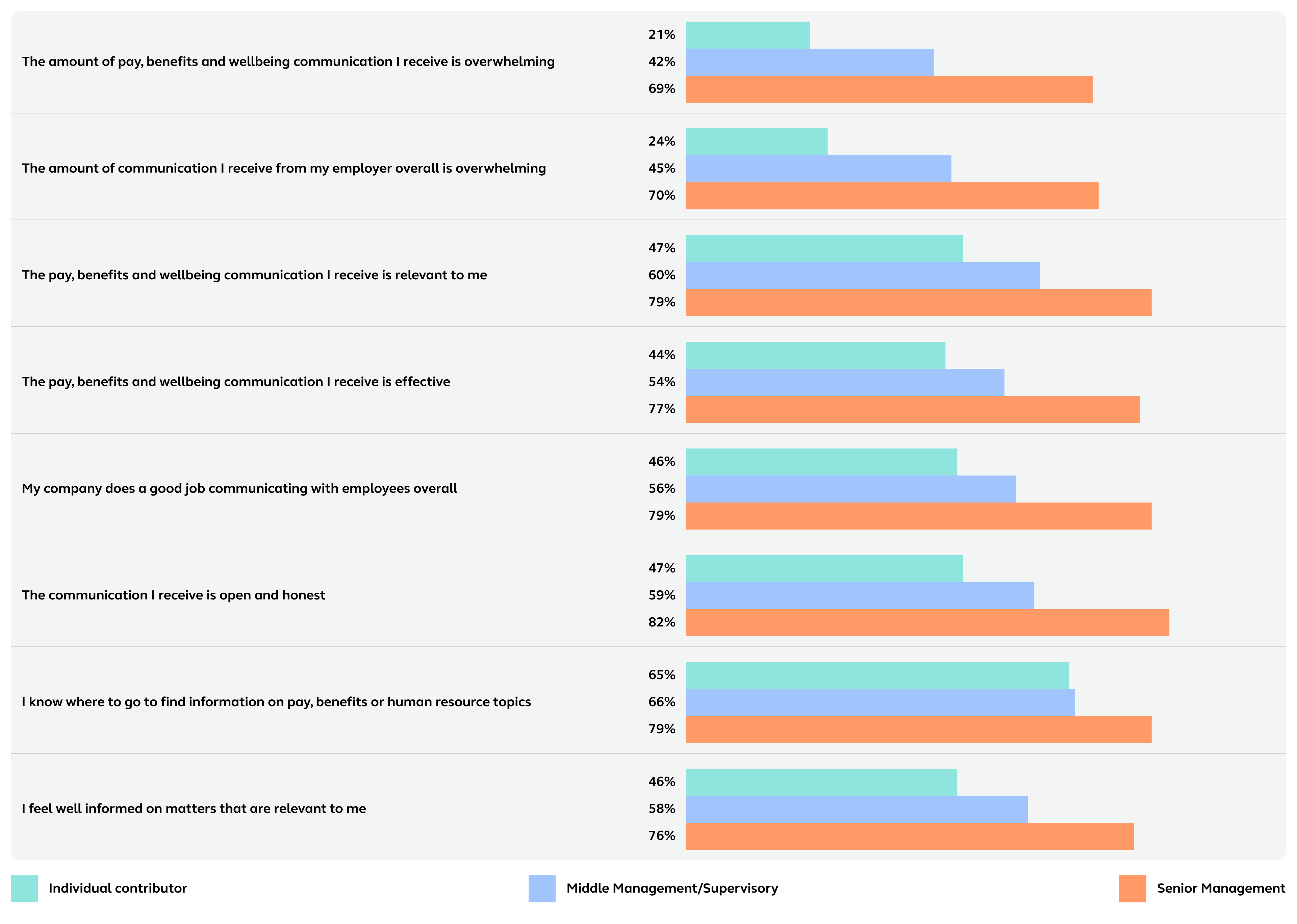
There’s no denying the importance of managers. Not only do they ensure alignment between organizational goals and the day-to-day activities of the employees under their supervision, they also serve as a conduit between senior leadership and frontline workers. However, many leaders need to support managers — as they struggle to balance pressures from senior leadership with the expectations of their people.
According to Alight’s 2024 International Workforce and Wellbeing Mindset Study, nearly two-thirds (64%) believe they are good people managers, but just over half (56%) actually enjoy managing people. Interestingly, 41% say they are a people manager only because it is required at their job level, while one-third (34%) say managing people is the worst part of their job.

In part, managers could be feeling uncomfortable with the people-managing aspect of their jobs because they don’t feel wholly connected to the organization’s mission and values. Their directors, vice-presidents and executive officers are failing to pass down the important aspects of company culture. Just two-thirds of middle managers say they feel connected to the purpose of their company, compared to 81% of senior managers.

Communication also seems to be a contentious topic for middle managers and supervisors. Senior managers consistently say that employer-provided communications about pay, benefits and wellbeing are effective and relevant. In fact, almost 70% say the amount of communication they receive is overwhelming. However, only 21% of individual contributors feel there is too much communication. This gap helps explain why just over half (56%) of middle managers say their leaders do a good job communicating with workers.

Fortunately, there are several ways employers and their leadership can help managers feel more comfortable and confident in their jobs:
- Provide more training. Nearly half of all managers say they wish they had more training to be a better people manager.
- Don’t be afraid of overcommunicating. Managers and individual contributors alike are far less likely than senior management to say the amount of communication they receive is overwhelming.
- Create a one-stop place for all benefits and HR topics. Less than two-thirds of middle managers and individual contributors know where to go to find information about benefits. Sites and apps like Alight Worklife® can provide workers with the front door to all their benefits and wellbeing information.
Managers play a crucial role in driving the success of their organizations. However, they are sorely in need of support from their leadership to feel confident performing their duties. By adopting a more hands-on approach to giving managers what they need to succeed in their role, employers can build their confidence and ensure they provide stellar leadership to their teams.


